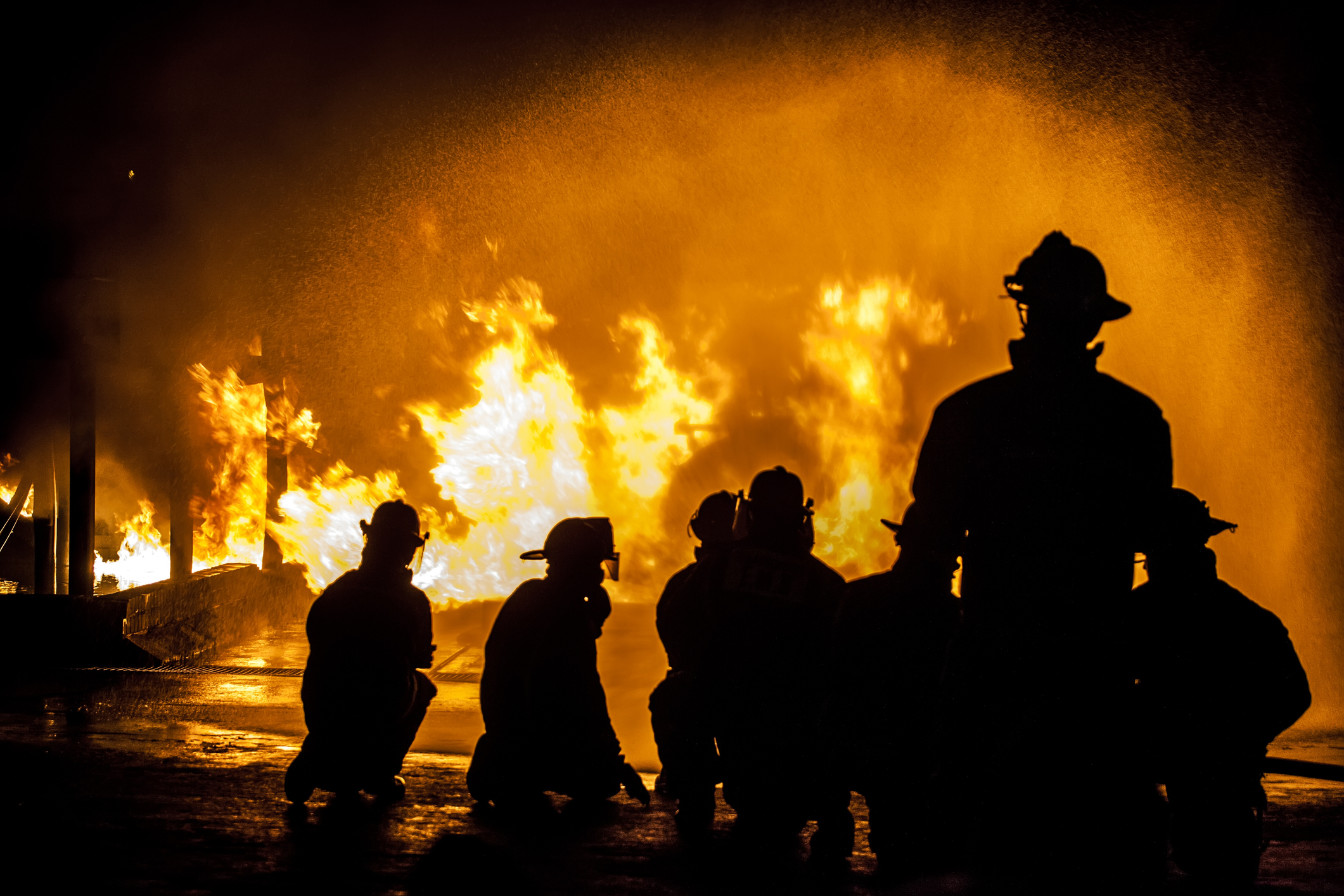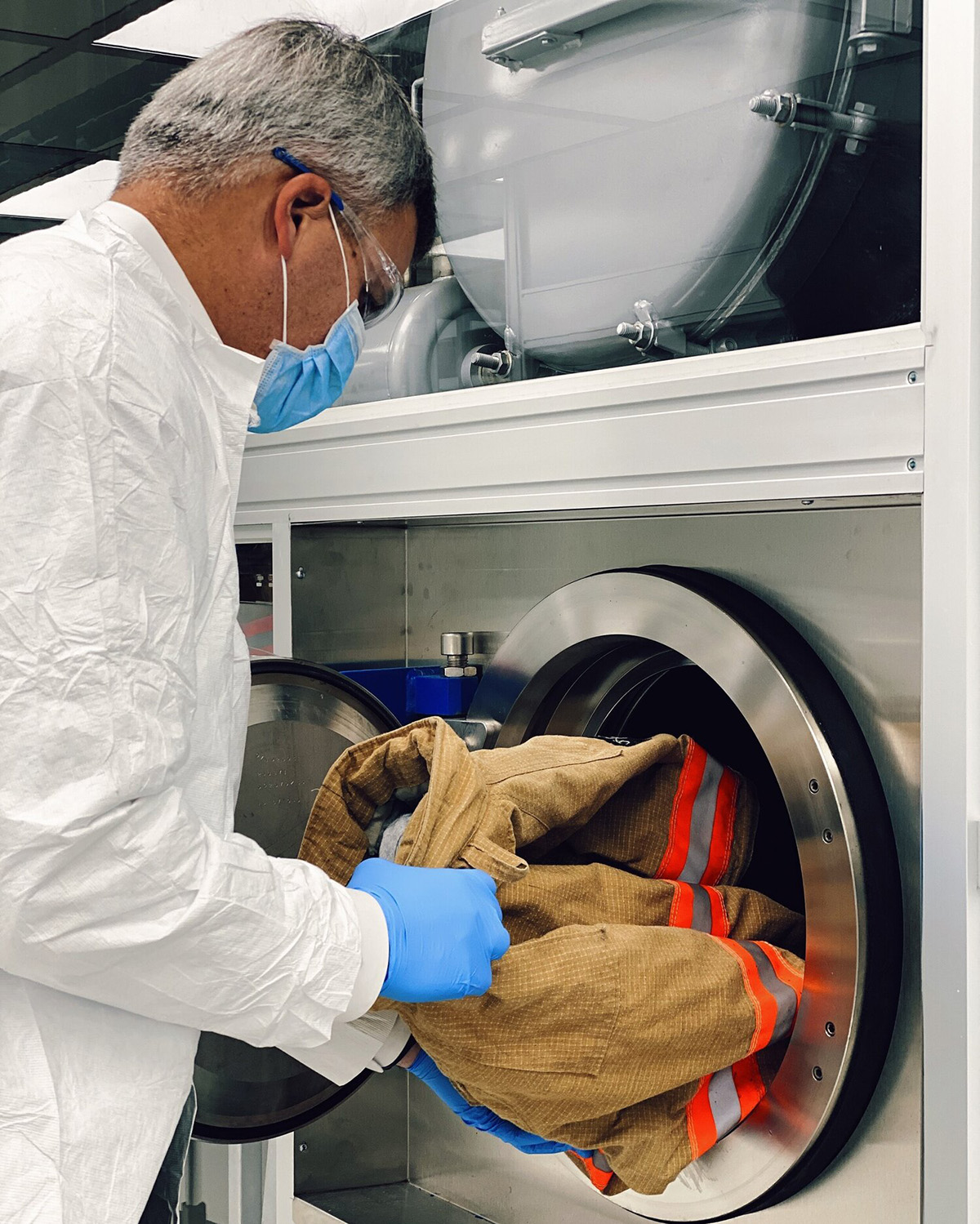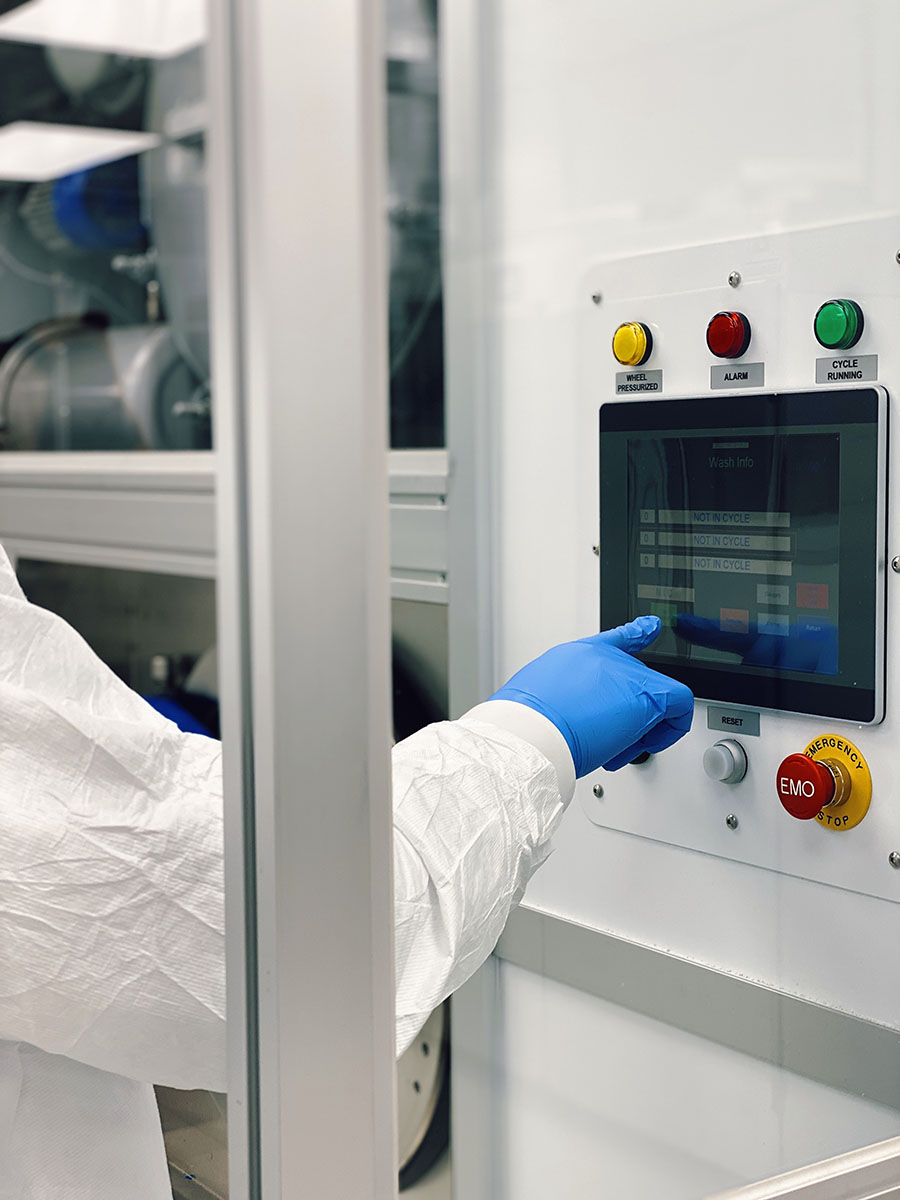By: Emergency Technical Decon Team
Fire departments across the country are facing a growing challenge: how to attract new recruits and retain experienced personnel in a high-risk, high-stress profession. While staffing issues are often addressed through pay, benefits, and work-life balance, one overlooked factor is firefighter health, specifically exposure to carcinogens through contaminated gear.
Today’s recruits are more informed than ever about occupational health risks. At the same time, seasoned firefighters are reevaluating their long-term wellness. Clean gear policies signal to both groups that their safety matters. Clean gear is no longer about appearance but about building a culture of care.
The Link Between Dirty Gear and Occupational Risk
Turnout gear traps toxic substances like PFAS, PAHs, soot, and heavy metals. These contaminants can linger long after the fire is out, increasing the risk of cancer, respiratory disease, and other health problems. Studies have shown that firefighters face a higher risk of cancer-related mortality than the general population, in part due to repeated exposure from uncleaned or improperly cleaned gear.
For prospective recruits, the message is clear: if departments fail to take gear contamination seriously, it raises concerns about how much they value health and safety.
Recruiting the Next Generation of Firefighters
Younger generations entering the workforce prioritize wellness and transparency. Clean gear programs that include consistent decontamination, on-scene gross decon, and advanced cleaning methods demonstrate that a department is proactive. When candidates see turnout gear visibly clean and know the department invests in proper cleaning protocols, they are more likely to feel safe and supported.
Departments that publicize their cancer prevention policies and cleaning partnerships can stand out during recruitment events. Clear messaging about health-first policies should now be essential for attracting qualified personnel.
Retention and the Cost of Illness
For departments already stretched thin, retaining experienced firefighters is critical. The long-term health consequences of repeated toxic exposure can lead to early retirements, disability claims, and worker’s compensation cases. These not only impact individual well-being but place financial and operational strain on departments.
Clean gear helps reduce chronic exposure and sends a clear message that leadership is committed to preserving the health of its teams. That trust contributes to greater morale and retention, especially as firefighters grow more aware of risks related to PFAS and carcinogens.
The Role of Decontamination Partners
Cleaning gear effectively requires more than a rinse or extractor wash. That’s where advanced solutions like Emergency Technical Decon’s Liquid CO2+ system come in. This process removes up to 84% of PFAS and 99.9% of semi-volatile organic compounds, without damaging the gear or releasing harmful wastewater.
Partnering with a professional service gives departments a scalable, consistent approach to gear maintenance. It also reduces the internal labor burden and eliminates guesswork around compliance with NFPA 1850.
A Culture of Prevention
Fire departments that invest in modern decontamination strategies are also investing in culture change. When firefighters are expected to bag dirty gear, change clothes promptly, and schedule regular cleanings, those habits reinforce the importance of health and safety.
Leadership plays a key role. When chiefs and officers prioritize decontamination, it becomes part of the department’s identity. That kind of leadership inspires confidence in recruits and builds lasting loyalty among veterans.
Protecting People, Strengthening Departments
Departments that treat gear cleaning as part of their health and safety strategy are better positioned to face today’s recruitment and retention challenges. Clean gear policies reflect a commitment to health, professionalism, and trust: three things that matter to every firefighter.
If your department is ready to improve firefighter well-being through better decontamination practices, Emergency Technical Decon can help. Reach out today to learn more about our Liquid CO2+ cleaning technology and how it supports your personnel, your operations, and your future.



